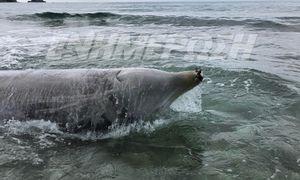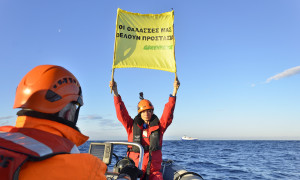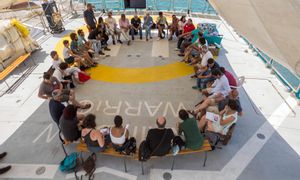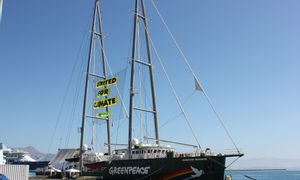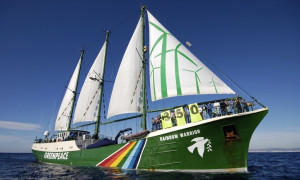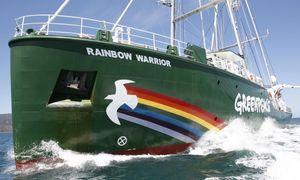New seismic surveys for gas west of Corfu
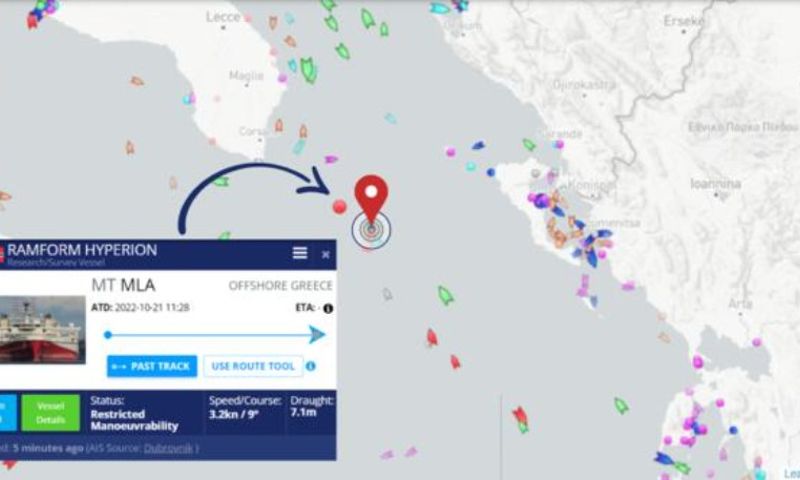
seismic surveys
03 Nov 2022
/ 12:25
CORFU. Strong protest from Greenpeace - Energean says it has taken all the necessary measures for environmental and social protection.
Seismic surveys for natural gas west of Corfu are starting up again. They had stopped following the washing up of cetaceans on Corfu beaches but it seems that due to new energy evidence, Energean-Helleniq Energy - the new name for Hellenic Petroleum (ELPE) - has returned the waters around Corfu, following those around Crete.
The surveys will be carried out in Block 2 in the Ionian Sea, near the border of the Greek-Italian AOZ, under the provisions of the new agreement for the delineation of the countries' maritime zones (AOZ). Well-informed sources have been saying that the preceding explorations in Italian water have created solid expectations of exploitable hydrocarbon deposits.

Norwegian PGS’ Ramform Hyperion seismographic vessel is ready to begin scanning the 2,000 km2 seabed. These are three-dimensional seismic surveys. For the seismic surveys of the Ramform Hyperion the relevant NAVTEX has been issued by the Hellenic Navy hydrographic service. Energean has announced that it has taken all the necessary environmental and social protection measures.
It stated, but without giving details, that the process will be supervised by three Marine Mammals Observers, two survey sound level recorders, liaisons with fisheries and local authorities, while the whole process will be monitored by the Coast Guard.
Greenpeace reaction
The development has provoked a reaction from the World Environmental Organisation:
"We are obviously not sitting by idly. On Thursday, 27 October we filed an information request with the Hellenic Hydrocarbons Management Company (EDEY) and the Ministry, requesting full public information regarding the research vessel Ramford Hyperion which is currently in the wider area of the Ionian Sea. We are still awaiting a response from EDEY.
“Seismic surveys and hydrocarbon mining not only threaten our country’s rich biodiversity, but also threaten our climate goals, in the face of the fast-growing crisis. Natural gas has proven to be a major pollutant during its extraction, transport and combustion, while the fluctuation in its price has contributed to the energy crisis, among other things. Whatever amount of gas is extracted - which will happen in 2029 at the earliest - will not remain in the country and will not meet its energy needs.
"The production companies that will mine it will export it with the aim of maximizing their profit. Consequently, the cause of the energy crisis cannot also be its solution, especially if its exploitation undermines climate action, threatens the country’s economy, and sectors such as tourism directly, increases energy poverty and destroys biodiversity.
"Greenpeace was, is and will be against all hydrocarbon extraction. We call on the Greek government to cancel the permits granted for mining in the plots near Crete and also in the rest of Greece.”
The surveys will be carried out in Block 2 in the Ionian Sea, near the border of the Greek-Italian AOZ, under the provisions of the new agreement for the delineation of the countries' maritime zones (AOZ). Well-informed sources have been saying that the preceding explorations in Italian water have created solid expectations of exploitable hydrocarbon deposits.

Norwegian PGS’ Ramform Hyperion seismographic vessel is ready to begin scanning the 2,000 km2 seabed. These are three-dimensional seismic surveys. For the seismic surveys of the Ramform Hyperion the relevant NAVTEX has been issued by the Hellenic Navy hydrographic service. Energean has announced that it has taken all the necessary environmental and social protection measures.
It stated, but without giving details, that the process will be supervised by three Marine Mammals Observers, two survey sound level recorders, liaisons with fisheries and local authorities, while the whole process will be monitored by the Coast Guard.
Greenpeace reaction
The development has provoked a reaction from the World Environmental Organisation:
"We are obviously not sitting by idly. On Thursday, 27 October we filed an information request with the Hellenic Hydrocarbons Management Company (EDEY) and the Ministry, requesting full public information regarding the research vessel Ramford Hyperion which is currently in the wider area of the Ionian Sea. We are still awaiting a response from EDEY.
“Seismic surveys and hydrocarbon mining not only threaten our country’s rich biodiversity, but also threaten our climate goals, in the face of the fast-growing crisis. Natural gas has proven to be a major pollutant during its extraction, transport and combustion, while the fluctuation in its price has contributed to the energy crisis, among other things. Whatever amount of gas is extracted - which will happen in 2029 at the earliest - will not remain in the country and will not meet its energy needs.
"The production companies that will mine it will export it with the aim of maximizing their profit. Consequently, the cause of the energy crisis cannot also be its solution, especially if its exploitation undermines climate action, threatens the country’s economy, and sectors such as tourism directly, increases energy poverty and destroys biodiversity.
"Greenpeace was, is and will be against all hydrocarbon extraction. We call on the Greek government to cancel the permits granted for mining in the plots near Crete and also in the rest of Greece.”
Recent history
The organisation’s ship Rainbow Warrior III was previously in the area in February. From Sunday 20 February the washing up of three creatures were recorded on the western coast of Corfu. The creatures were successfully returned to the sea. Similar incidents also occurred in 2011, as recorded in Enimerosi archives.
Exploration has now begun again to identify possible natural gas fields in the Greek concessions, following the government decision in April. The results are expected in the coming months.





